Charlotte Mason Series #5 – Living Math
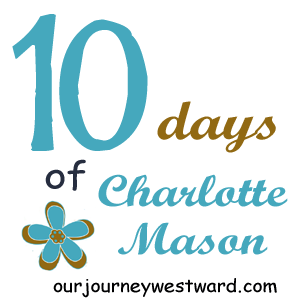
Welcome to day 5 of the 10 Days of Homeschooling blog hop! We’re halfway through this awesome event, and I hope you’ve gleaned as much as I have from all the wonderful ladies taking part! You can find the previous posts in my Charlotte Mason homeschooling series here.
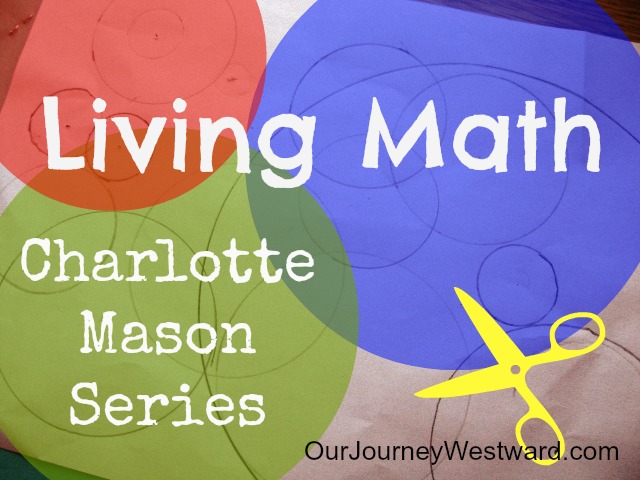
This post contains affiliate links .
What is Living Math?
This term is not part of Charlotte Mason’s actual vocabulary. She talks about living teaching, which we can assume means all subjects should be taught in a “living” manner. Going back to the definition of living when I wrote about living literature, this means our lessons should be engaging, come alive and not make our children feel as if they’ve wasted their time. In other words, the lessons should be meaningful and have a real means to an end.
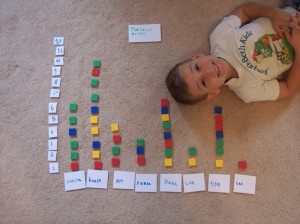
When talking about math, it’s a little harder to convince most of our children that lessons really do have a means to an end! However, when we are giving assignments that build upon understanding, turn on “light bulbs” in the mind, and tie learning into real-life, we aren’t wasting their time (no matter what they may think!) On the other hand, we do waste their time when we dole out assignments that do nothing more than make our children repeat problem and after problem,
- all of which they already can do proficiently,
- or with no real understanding.
With that in mind, living math can take on MANY forms – including textbook lessons – IF they have meaning. Each lesson then, should build on a previously mastered concept, practice concepts that haven’t yet been mastered, or introduce entirely new new concepts.
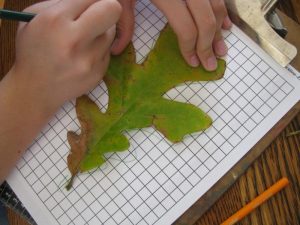
Real understanding should be the first and foremost goal, rather than having your child get the right answers. Some children can get the right answers, but have no idea why. Later down the road, they begin to struggle with higher level math because they never really understood the basic concepts to begin with. To build real understanding, especially for younger children, learning needs to go from concrete to abstract. Manipulatives are a great way to do this because your child can actually touch, move and form a picture of math. Once your child has a good grasp of the concept using manipulatives, the next logical step is to draw pictures on paper, followed later by writing equations. In this way, you move your child from concrete to abstract understanding and math begins to make sense.
There are many, many methods of teaching math so that it’s well-rounded, concrete, meaningful and joyful. In our home, we use a math textbook about 3 days a week (adding manipulatives when necessary) and use other methods the rest of the week. I’ve been known to include:
- living literature
- logic
- problem solving
- technology
- projects
- real-life activities
- games
- and anything else I can dream up
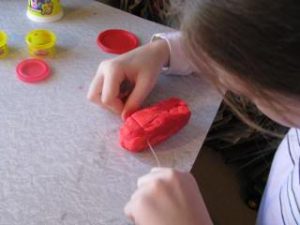
The biggest question I get when talking about my living math schedule is, “What about not finishing the textbook?’
You’re right, if I’m only doing the textbook 3 days a week, it’s not being finished each year! We finish about 2/3 of it, and have ever since my children were in kindergarten. At the end of the school year, I have my children take the math placement tests I find online (Saxon) and they’ve NEVER failed to sail easily into the next year’s curriculum, sometimes higher.
There is so much more I could explain about how to incorporate living math that I could write a book. Oh, wait! I have! If you’d like to learn more about HOW to add living math into your schedule, consider Loving Living Math.
Can’t Get Enough?
I’ve gathered all my living math info and posts in one convenient spot for you. Be sure to check out the Living Math Index Page!
One week down, one to go! Join me again Monday as we discuss Artists, Composers and Poetry!
Incorporate More Living Math
Learn more about living math with this excellent resource! The Living Math Video Training will give you lots of great ideas to incorporate living math into your homeschool routine. Grab your kids’ attention with these fun, yet practical math activities!
Other posts you might like:
100+ Living Math ActivitiesIndependent Math GamesCandy Math


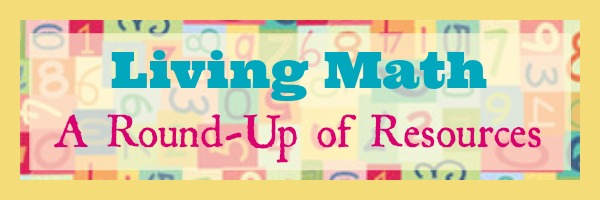
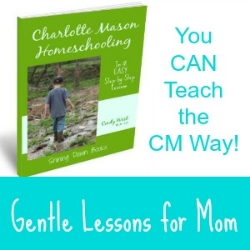

Math is a daily struggle for us. I’ve tried to incorporate living math into our weeks, but I struggle with finding activities.
Your post on Living Math has me thinking that I need to change how I do math with my boy who “hates math!” When my budget can fit it in, I’m going to buy your e-book for how-to’s on changing his program! Thanks for your great inspiration!
Wonderful post! I’m posting on Montessori Math today- guess it’s a math day! I love the graphing you did on the floor, I will definitely be using that idea! (BTW I already have a ticket to HOTM, so don’t put my name in) 🙂
I would also suggest for your readers the book “Games for Math” by Peggy Kaye. My math-struggler loves the games we play to reinforce concepts!
I am enjoying your CM series so much! Please enter my name in the drawing. Thank you!
Just wanted to let you know that I’m enjoying your series. I discovered Charlotte Mason about 12 years ago, early in our home schooling days. Her concepts of learning changed our little school and transformed me from a bored home school mom to an excited one. Over the years there have been many times when I reverted back to using a lot of workbooks, text books, etc. because they are easier. Then I’ll go back to using Charlotte’s methods again and I feel life being breathed into our days.
Thank you for taking the time to share these ten days with us. I feel encouraged!
I’m really enjoying your posts on CM! I was beginning to wonder if I did ‘living math’ while reading your post, but perhaps I do if I’m doing Math U See and manipulative work. I also started my kids off with the Froebel gifts which is a great way to teach living math. I’m going to use some of your other ideas to impliment living math as well. Maybe we’ll go count cows in the pasture and work on our multiplication. lol
Michelle
I like this! I teach preschoolers in my daycare and we use manipulatives for every single math concept. I don’t know why they get abandoned so quickly past Kindergarten in public schools!
I really haven’t seen this book…I will research more (for like what age levels and such). We love Life of Fred Math Series for our math and Math-U-See for younger years… Thanks! Looking forward to all the 10 days of CM!
I think living math would be a good fit for us I plan on looking into it some more thanks
Please enter me in the drawing. Thanks! 🙂
I am so thankful for 10 days series….I would have never found your blog and as a result I have been checking out books left and right from the library! Thank you!
I am fascinated with this! I struggle with math, partially because I don’t like it & partially because Lil’ Bit doesn’t either. Thanks for the info!
I’m really enjoying reading your posts. I, too, am a CM homeschooler, and it’s nice to be reminded why I do what I do… what a great method it really is.
Very timely post for me. I’ve been doing a lot of reading and researching looking for ways to help my son see the nitty-gritty (facts memorization) parts of math as meaningful.
I’m really enjoying your posts this week and am learning a lot. Thanks for taking your time to write such thoughtful posts.
Cindy I got your Living Math ebook a couple weeks ago and am loving it. You have encouraged our homeschool to branch out – and to realize that we were already doing some of the living math suggested! Hooray! So looking forward to the HOTM conference as Math is our weak spot. Thank you.
Hope I’m not too late for the drawing; I am REALLY having a difficult time with my 3rd grader.
I am loving your CM posts! We are new to the homeschooling world this year, as my oldest is in Kinder. We use Saxon too and I would love to incorporate more living Math. I like your schedule with the 3 days a week. Thanks so much for sharing!
I am really enjoying this series. The Charlotte Mason method has changed the way we homeschool. I love reading about how others are incorporating this method into their homeschooling.
My book (and the workshop next week) will give you tons of resources for activities!
Thanks for the book suggestion!
That’s a good way to describe a “CM day” – a breath of life.
I’m not experienced with Math U See, but from what I understand, it has a living feel to it. Did you go to the cow pasture? 🙂
Good for you!
Loving Living Math is a resource book for any parent hoping to learn how to add more living math to their homeschool. It’s appropriate for parents of all age levels.
I’ve heard several good comments about Life of Fred.
Librarians LOVE CMer’s!
Tricia, you’re always so encouraging! Thank you!!
What are some of the problems you’re having?
Cindy – I have been trying to find and link to the conference pageto sign up for weeks. All I get is a “bluehost” webpage. . . . any suggestions? I enjoyed the conference so much last year.
Thank you for any help – Kristi Chan
Kristi, I’m not sure they have organized a conference for 2012.
Loving your resources and ideas! I’m trying to plan for our year with a 1st grade boy and a Kinder girl! Looks like the links to your amazon items aren’t working. I’d love to see what games you suggest for math! We already do mancala, blink, pick up sticks, and set. I’d love to add more to our games for math!
Thanks for letting me know about the bad links, Shelley! All the links have been updated. :o) You already have a great start on math games!